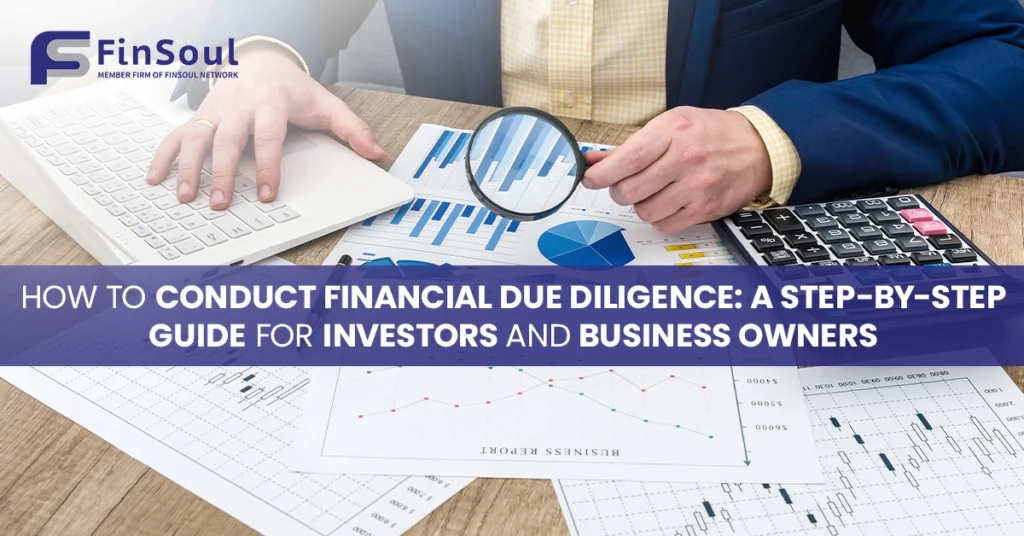Imagine standing at the edge of a promising investment opportunity. The numbers look solid, the pitch is persuasive, and the potential returns are tempting. But what if the financial foundation is cracked beneath the surface? That’s where the due diligence process becomes indispensable. It’s not just a formality—it’s your insurance against hidden risks, inflated valuations, and future regret.
In Bahrain’s fast-evolving business landscape, where cross-border deals and regulatory shifts are common, understanding the financial due diligence process is essential for investors, business owners, and corporate buyers alike.
What Is Financial Due Diligence?
Financial due diligence is a comprehensive evaluation of a company’s financial health, designed to verify its claims and uncover any red flags. Unlike a traditional audit, which focuses on accuracy, due diligence digs deeper—assessing sustainability, risk exposure, and long-term viability.
Whether you’re acquiring a business, investing in a startup, or entering a joint venture, conducting proper due diligence in Bahrain ensures you’re making decisions based on facts, not assumptions.
Step-by-Step Due Diligence Process
1. Define Your Objectives and Scope
Start by clarifying your goals. Are you buying, investing, or partnering? Your scope should include:
- Historical financials
- Tax records
- Legal obligations
- Operational metrics
This initial step sets the tone for a focused and effective due diligence assessment.
2. Assemble a Skilled Due Diligence Team
Bring together financial analysts, legal advisors, and industry experts. Appointing a due diligence officer ensures that the process is coordinated, consistent, and aligned with your strategic goals.
3. Analyze Financial Statements
Review income statements, balance sheets, and cash flow reports for the past 3–5 years. Look for:
- Revenue trends and anomalies
- Expense breakdowns
- Debt levels and repayment schedules
- Profit margins and EBITDA adjustments
This analysis helps determine the true financial position of the company.
4. Evaluate Earnings Quality
Go beyond the numbers. Are earnings sustainable, or are they inflated by one-time events or promotional pricing? This step is crucial for understanding the real value of the business.
5. Review Tax and Legal Compliance
Use a legal due diligence checklist to examine:
- Tax filings and VAT records
- Licenses and permits
- Contracts and obligations
- Pending litigation or regulatory issues
This ensures the business is legally sound and free from hidden liabilities.
6. Assess Cash Flow and Working Capital
Cash flow is the lifeblood of any business. Evaluate:
- Liquidity ratios
- Payment cycles
- Inventory turnover
- Working capital needs
Also conduct customer due diligence to understand client concentration, payment reliability, and revenue sustainability.
7. Examine Debt and Liabilities
Review all loan agreements, credit lines, and contingent liabilities. A thorough due diligence audit helps uncover risks that could impact future cash flow or valuation.
8. Operational and Strategic Review
Assess the company’s KPIs, supplier relationships, and market positioning. This adds context to the financial data and helps forecast future performance.
9. Prepare the Due Diligence Report
Summarize your findings in a clear, actionable due diligence report. Include:
- Key risks and red flags
- Financial strengths and weaknesses
- Valuation adjustments
- Strategic recommendations
This report becomes your roadmap for negotiation and decision-making.
Due Diligence in Bahrain: What You Need to Know
In Bahrain, financial due diligence must align with:
- Central Bank of Bahrain (CBB) regulations
- Bahrain Economic Vision 2030
- Free zone vs. mainland business structures
Finsoul Bahrain offers specialized support for due diligence in Bahrain, ensuring compliance with local laws and international standards. Whether you’re a local entrepreneur or a foreign investor, our expertise helps you navigate the complexities of Bahrain’s regulatory environment.
Final Thoughts
Conducting financial due diligence is more than a checklist—it’s a strategic process that protects your investment and empowers your decisions. In a market like Bahrain, where opportunities are abundant but risks can be hidden, mastering the due diligence process is your competitive edge.
From verifying financials to assessing legal risks, every step matters. And with Finsoul Bahrain by your side, you’ll have the clarity and confidence to move forward—smartly, securely, and successfully.

